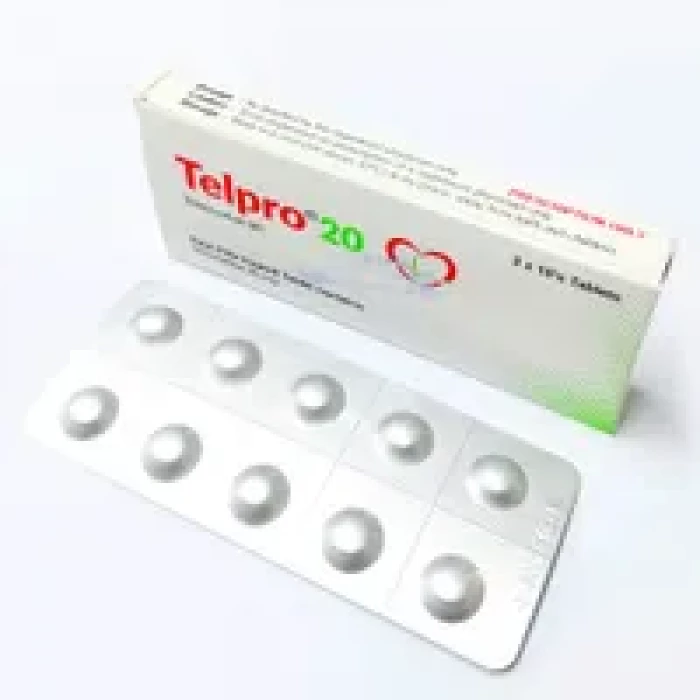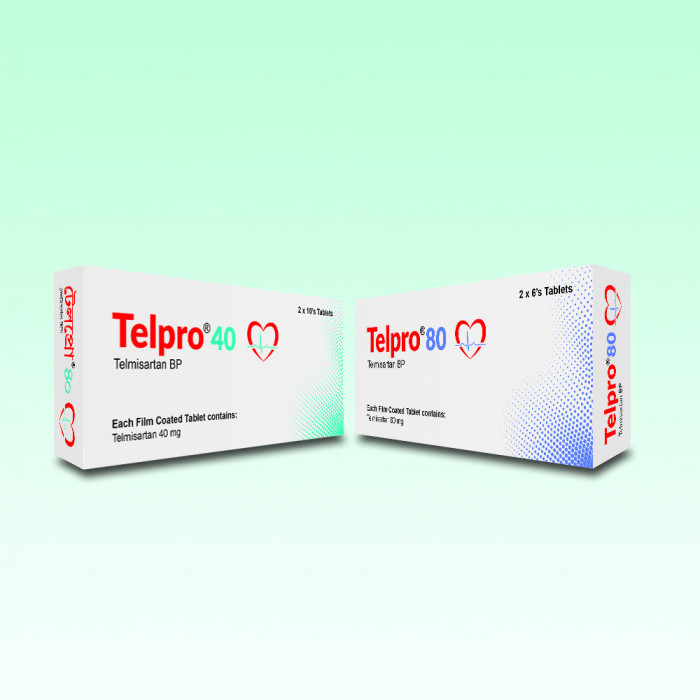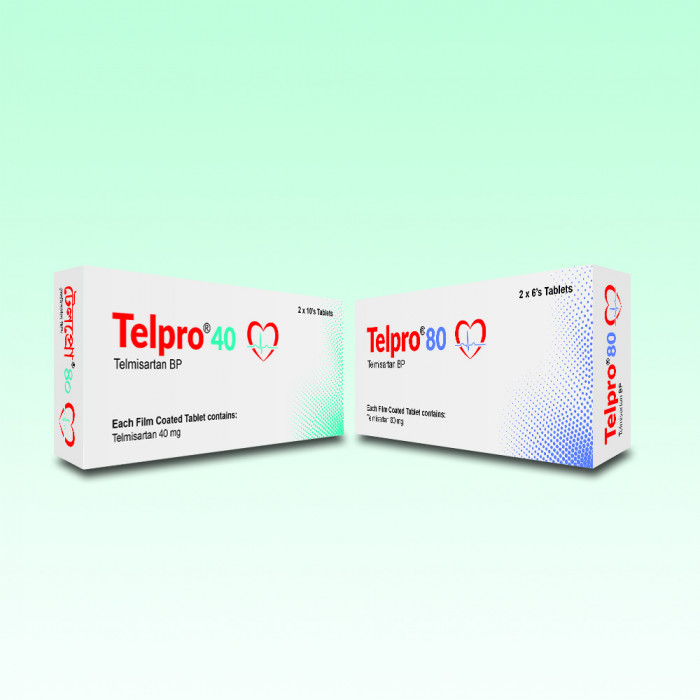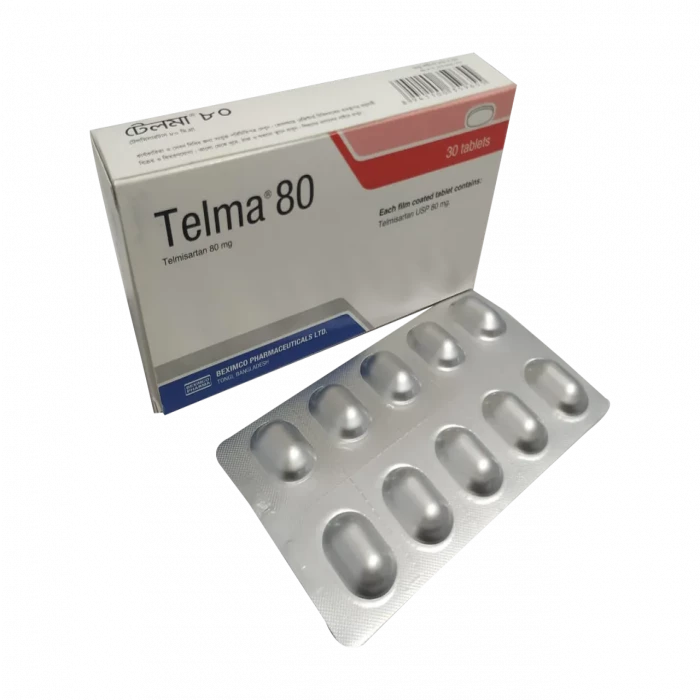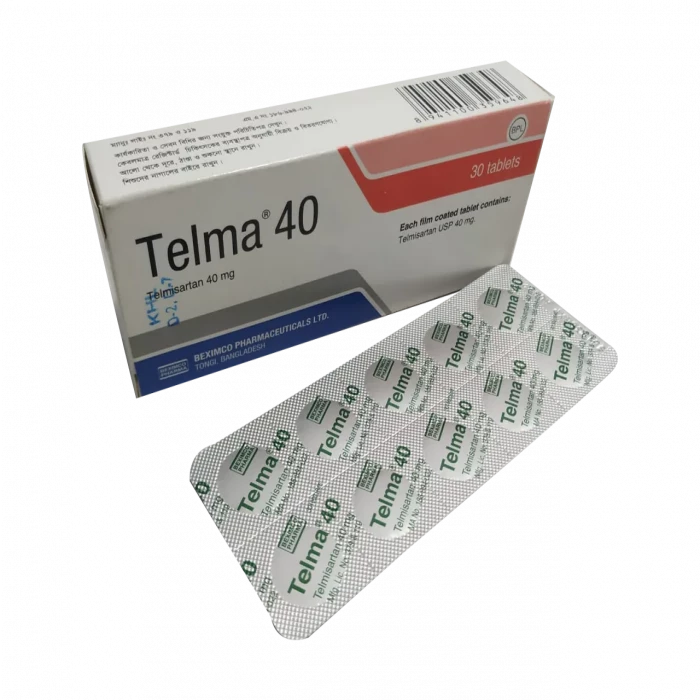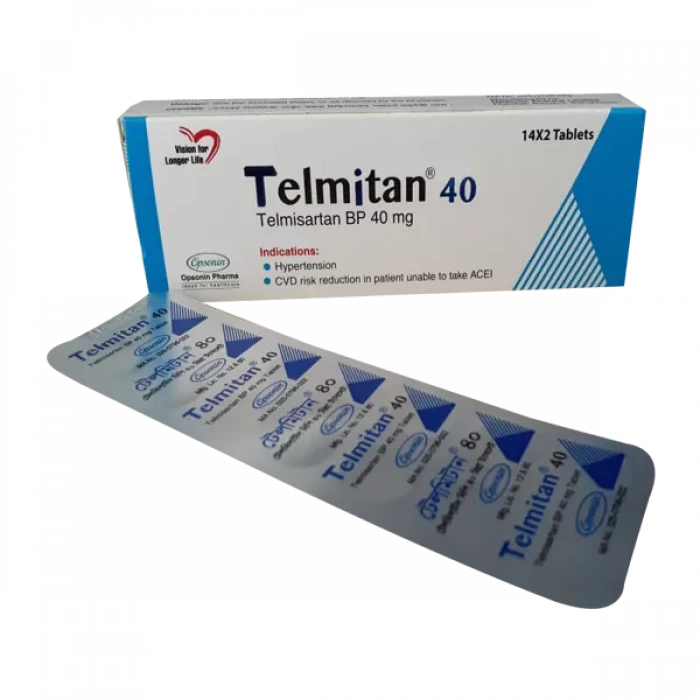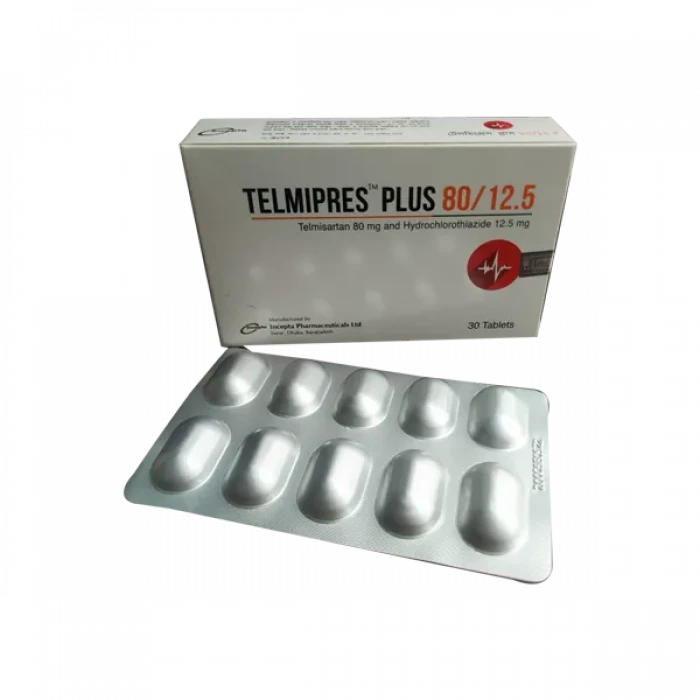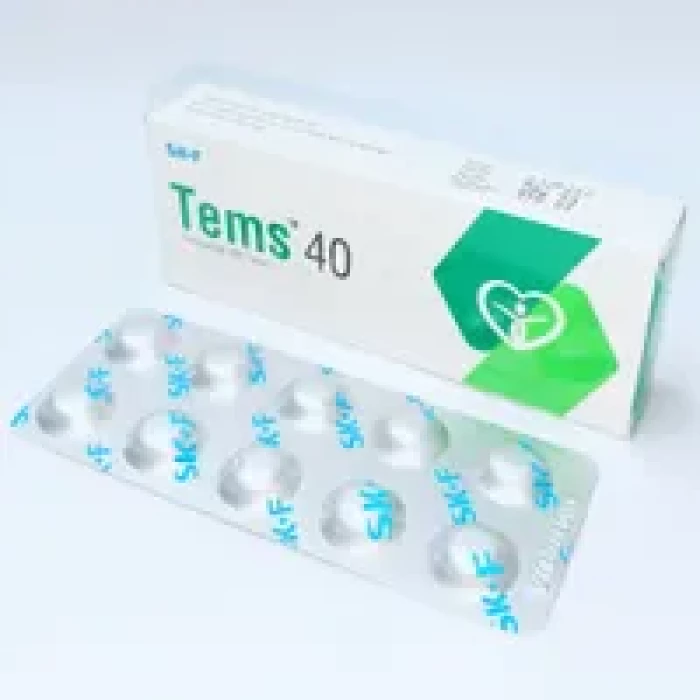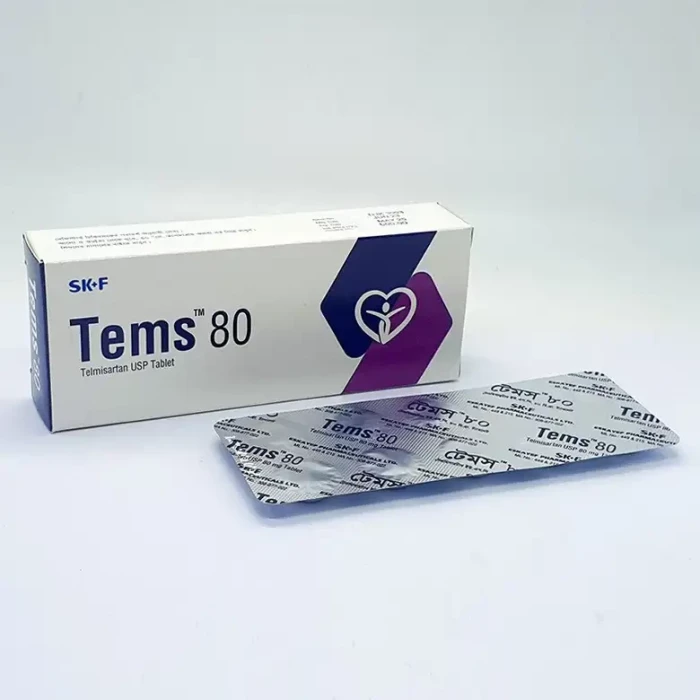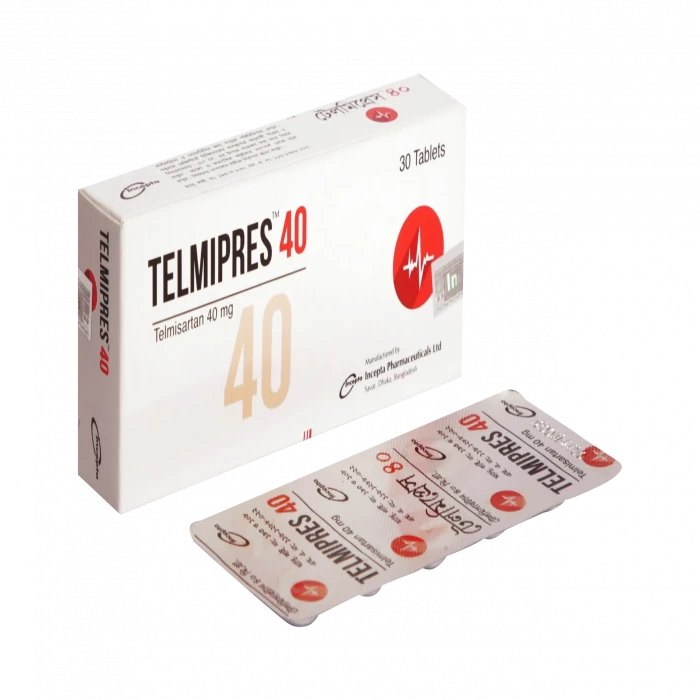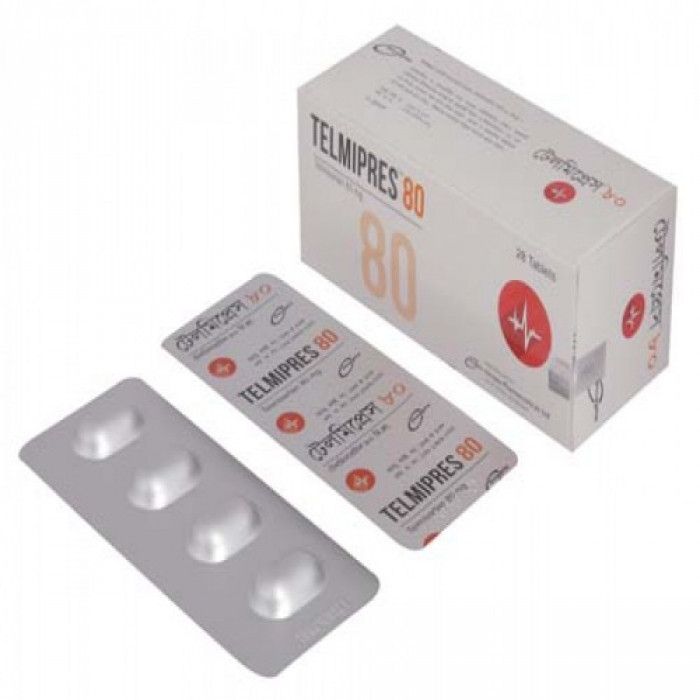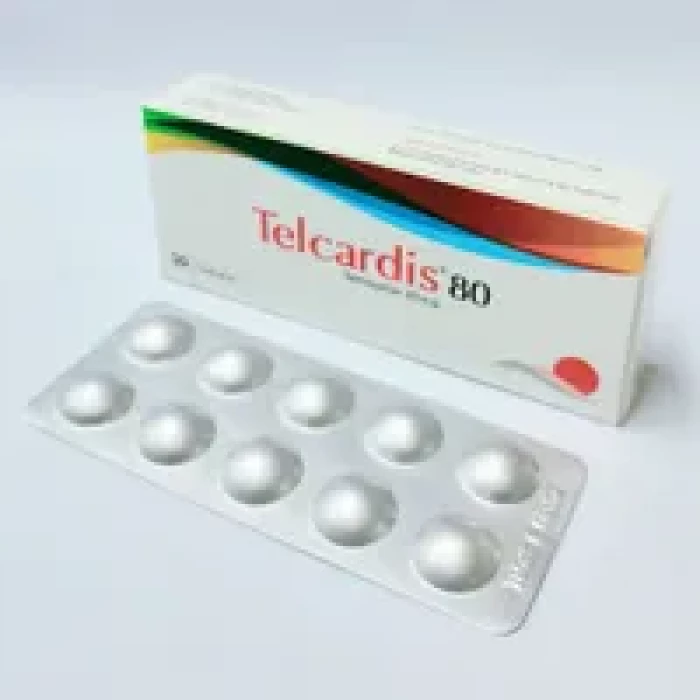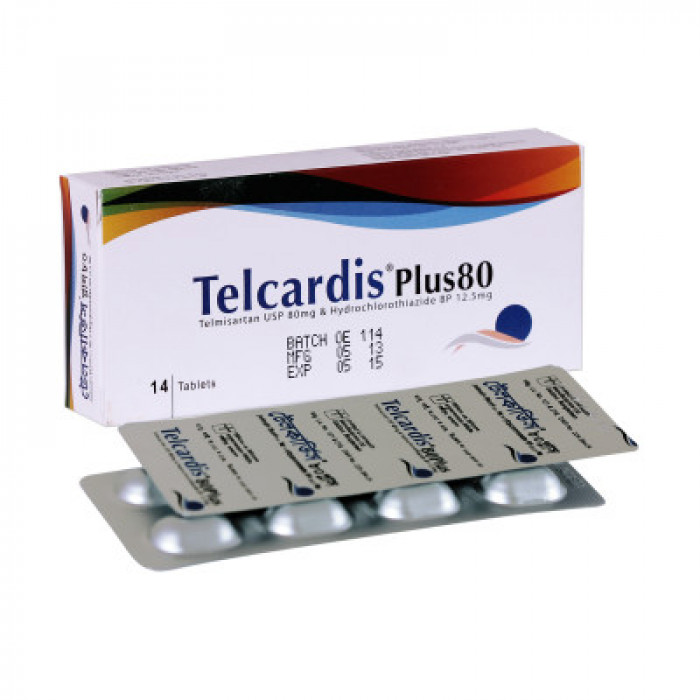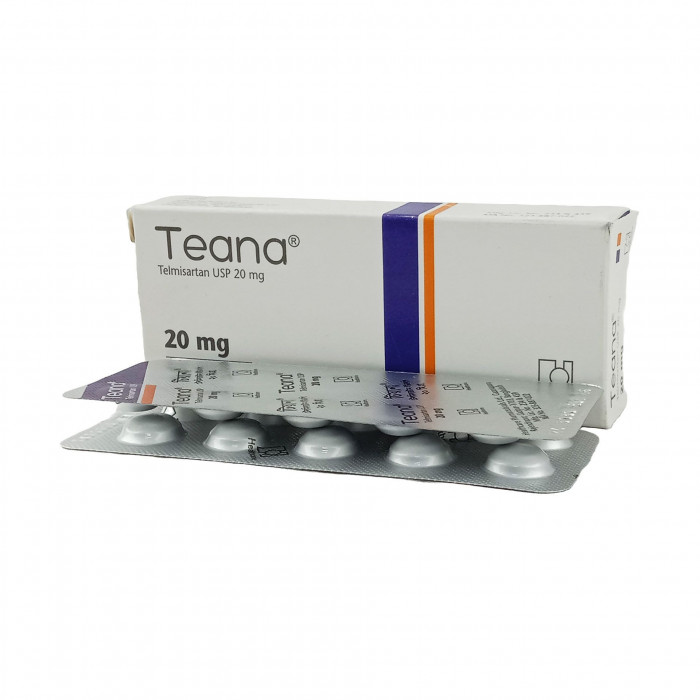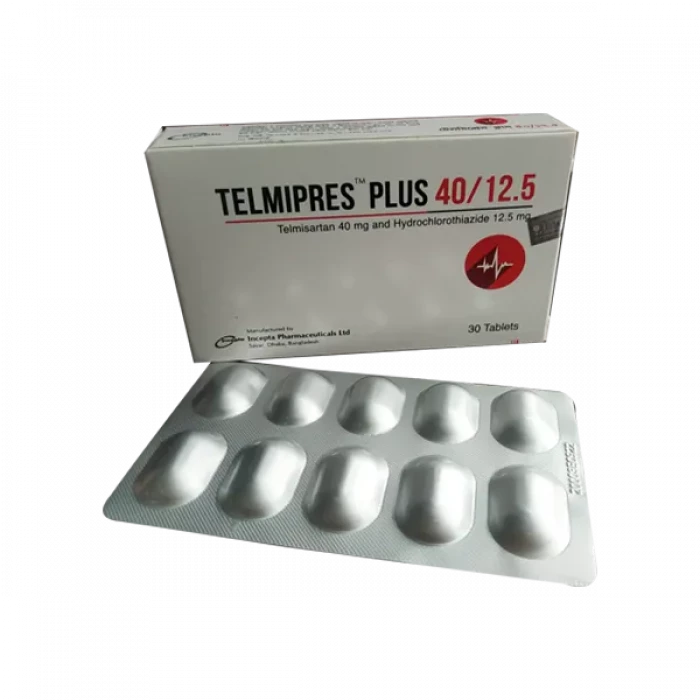
✔ 100% Authentic Product
👁️ Currently Viewing 1711
✅ Description:
Indications
Telmisartan and hydrochlorothiazide are suitable for the treatment of hypertension to lower blood pressure. Lowering blood pressure can reduce the risk of fatal and non-fatal cardiovascular events, especially stroke and myocardial infarction. These benefits have been confirmed in controlled studies of antihypertensive drugs from various pharmacological categories (including the main category of the drug). There are no controlled studies showing that telmisartan and hydrochlorothiazide can reduce the risk.
Hypertension control should be part of comprehensive cardiovascular risk management, including blood lipid control, diabetes management, antithrombotic therapy, smoking cessation, exercise, and appropriate restriction of sodium intake. Many patients need more than one medication to reach their blood pressure goals. Specific recommendations on goals and management can be found in published guidelines. For example, the
randomized controlled trial showed that multiple antihypertensive drugs from various pharmacological categories and with different mechanisms of action can reduce cardiovascular morbidity and mortality , It can be concluded that they have a blood pressure lowering effect, but not any other pharmacological properties. It is the drug that is mainly responsible for these benefits. The greatest and most consistent benefit for cardiovascular outcomes is the reduction of stroke risk, but reductions in myocardial infarction and cardiovascular mortality are also frequently observed.
Elevated systolic or diastolic blood pressure will increase cardiovascular risk. The higher the blood pressure, the greater the absolute risk per mmHg, so even a slight reduction in severe hypertension can bring significant benefits. Among people with different absolute risks, the relative risk reduction brought about by lowering blood pressure is similar. Therefore, regardless of whether they have hypertension or not, these patients (such as diabetes or hyperlipidemia patients) will have greater absolute benefits and are expected Benefit from more aggressive treatment to achieve the goal of lowering blood pressure.
Some antihypertensive drugs are less effective on blood pressure in black patients (as a monotherapy), and many antihypertensive drugs have additional approved indications and effects (for example, for angina pectoris, heart failure, or diabetic nephropathy). These considerations may guide treatment options.
Telmisartan and hydrochlorothiazide are not suitable as first-line treatments for hypertension.
Telmisartan and hydrochlorothiazide can be used alone or in combination with other antihypertensive drugs.
Pharmacology
Telmisartan: Angiotensin II is formed by angiotensin I in a reaction catalyzed by angiotensin converting enzyme (ACE, kininase II). Angiotensin II is the main antihypertensive drug of the renin angiotensin system. It has the functions of constricting blood vessels, stimulating the synthesis and release of aldosterone, heart stimulation, and reabsorption of renal sodium. Telmisartan blocks the vasoconstrictor and aldosterone secretion of angiotensin II by selectively blocking the binding of angiotensin II to AT1 receptors in many tissues (such as vascular smooth muscle and adrenal glands). Therefore, its effect has nothing to do with the pathway used for the synthesis of angiotensin II.
An AT2 receptor has also been found in many tissues, but it is not known that AT2 is involved in cardiovascular homeostasis. Telmisartan has a much greater affinity for AT1 receptors than AT2 receptors (>3,000 times).
Telmisartan does not inhibit ACE (kininase II), nor does it bind to or block other hormone receptors or ion channels that are known to be important for cardiovascular regulation.
Blocking angiotensin II receptor can inhibit the negative regulation feedback of angiotensin II on renin secretion, but the resulting increase in plasma renin activity and circulating angiotensin II levels cannot overcome the effect of telmisartan on blood pressure Impact.
Hydrochlorothiazide: Hydrochlorothiazide is a thiazide diuretic. Thiazides affect the renal tubular mechanism of electrolyte absorption and directly increase the excretion of approximately equal amounts of sodium and chloride. Indirectly, the diuretic effect of hydrochlorothiazide reduces plasma volume, leading to increased plasma renin activity, increased aldosterone secretion, increased urinary potassium loss, and decreased serum potassium. Renal aldosterone compounds are mediated by angiotensin II, so combined use of ARB tends to reverse the potassium loss associated with these diuretics. The antihypertensive mechanism of thiazide drugs is not yet fully understood.
Dosage & Administration
Initiate a patient whose blood pressure is not adequately controlled with telmisartan monotherapy 80 mg: Telmisartan and hydrochlorothiazide 80 mg/12.5 mg once daily. Dose can be titrated up to 160 mg / 25 mg after 2 to 4 weeks, if necessary.
Initiate a patient whose blood pressure is not adequately controlled by 25 mg once daily of hydrochlorothiazide, or is controlled but who experiences hypokalemia with this regimen: Telmisartan and hydrochlorothiazide 80 mg / 12.5 mg once daily. Dose can be titrated up to 160 mg / 25 mg after 2 to 4 weeks, if necessary.
Telmisartan and hydrochlorothiazide may be administered with other antihypertensive drugs.
Interaction
Lithium, kaliuretic diuretics, laxatives, corticosteroids, ACTH, amphotericin, carbenoxolone, penicillin G, salicylates, K-sparing diuretics, K supplements, K salt substitutes drugs that cause hyperkalaemia, digitalis glycosides, antiarrhythmic agents, drugs known to induce torsades de pointes, alcohol, barbiturates, narcotics, oral antidiabetics, insulin, anion-exchange resins, NSAIDs, nondepolarising skeletal muscle relaxants, pressor amines, allopurinol, Ca salts, beta-blockers, diazoxide, anticholinergics, amantadine, cytotoxics.
Contraindications
Telmisartan and hydrochlorothiazide is contraindicated:
In patients who are hypersensitive to any component of this product
In patients with anuria.
For co-administration with aliskiren in patients with diabetes
Side Effects
Telmisartan: upper respiratory tract infection (7%), urinary tract infection (1%), back pain (3%), diarrhea (3%), myalgia (3%), fatigue (1%), sinusitis ( 3%), peripheral edema (1%), chest pain (1%), hypertension (1%), indigestion (1%), headache (1%), dizziness (1%), pharyngitis (1%)
Hydrochlorothiazide : Anorexia, abdominal discomfort, hypotension, orthostatic hypotension, photosensitivity, allergic reactions, anemia, confusion, erythema multiforme, Stevens-Johnson syndrome, exfoliative dermatitis including toxic epidermal necrolysis, dizziness, Hypokalemia and/or hypomagnesemia, hyperuricemia
Pregnancy & Lactation
Telmisartan: Angiotensin II is formed by angiotensin I in a reaction catalyzed by angiotensin converting enzyme (ACE, kininase II). Angiotensin II is the main antihypertensive drug of the renin angiotensin system. It has the functions of constricting blood vessels, stimulating the synthesis and release of aldosterone, heart stimulation, and reabsorption of renal sodium. Telmisartan blocks the vasoconstrictor and aldosterone secretion of angiotensin II by selectively blocking the binding of angiotensin II to AT1 receptors in many tissues (such as vascular smooth muscle and adrenal glands). Therefore, its effect has nothing to do with the pathway used for the synthesis of angiotensin II.
An AT2 receptor has also been found in many tissues, but it is not known that AT2 is involved in cardiovascular homeostasis. Telmisartan has a much greater affinity for AT1 receptors than AT2 receptors (>3,000 times).
Telmisartan does not inhibit ACE (kininase II), nor does it bind to or block other hormone receptors or ion channels that are known to be important for cardiovascular regulation.
Blocking angiotensin II receptor can inhibit the negative regulation feedback of angiotensin II on renin secretion, but the resulting increase in plasma renin activity and circulating angiotensin II levels cannot overcome the effect of telmisartan on blood pressure Impact.
Hydrochlorothiazide: Hydrochlorothiazide is a thiazide diuretic. Thiazides affect the renal tubular mechanism of electrolyte absorption and directly increase the excretion of approximately equal amounts of sodium and chloride. Indirectly, the diuretic effect of hydrochlorothiazide reduces plasma volume, leading to increased plasma renin activity, increased aldosterone secretion, increased urinary potassium loss, and decreased serum potassium. Renal aldosterone compounds are mediated by angiotensin II, so combined use of ARB tends to reverse the potassium loss associated with these diuretics. The antihypertensive mechanism of thiazide drugs is not yet fully understood.
Precautions & Warnings
Hepatic insufficiency, biliary obstruction, renal impairment, renaly artery stenosis. Correct volume depletion before initiating treatment. Monitor serum potassium levels regularly, especially in elderly and renally-impaired patients.
Storage Conditions
Store at 25° C. Tablets should not be removed from blisters until immediately before administration.
⚠️Disclaimer:
At ePharma, we’re committed to providing accurate and accessible health information. However, all content is intended for informational purposes only and should not replace medical advice from a qualified physician. Please consult your healthcare provider for personalized guidance. We aim to support, not substitute, the doctor-patient relationship.




